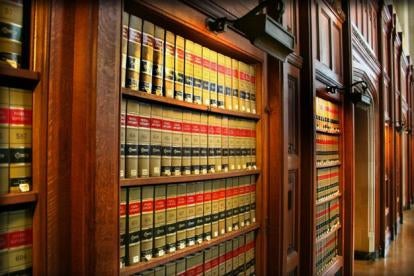A federal judge in the Southern District of New York recently sustained the SEC’s insider-trading complaint against two alleged tippees, holding that, under the pleading standard applicable to a motion to dismiss, the SEC need not plead specific facts showing that the tip was exchanged as part of a quid pro quo relationship and that the tippees knew of such an exchange if the SEC (i) does not know the identity of the tipper or how the tip was relayed and (ii) pleads belief about the nature of the tip and the tippees’ knowledge, “coupled with particular facts supporting that belief.” The court also upheld its prior asset-freeze order, ruling that the standard for an asset freeze “requires only ‘a basis to infer liability,’ and thus may be lower than the standard on a motion to dismiss.”
In SEC v. Jafar (S.D.N.Y. June 8, 2015), the tippee defendants argued that the Second Circuit’s 2014 decision in United States v. Newman increased the Government’s burden in insider-trading cases and therefore required reconsideration of the court’s earlier denial of their motion to dismiss. (We previously wrote about the Newman decision at here, here, here, here, here and here.) Southern District Judge J. Paul Oetken denied the motion.
Judge Oetken recited Newman’s holding that “a tippee may be liable in a civil suit for insider trading only if he knew or should have known that the information he traded on was divulged by the tipper for personal benefit.” In this case, however, “the SEC appears to know neither the identity of the tipper nor how the tip was relayed to Defendants.” Accordingly, the court observed, “[i]t follows that the SEC has not pleaded specific facts that illuminate whether the tip was exchanged as part of a quid pro quo relationship and whether the Defendants knew that the tip was exchanged as part of a quid pro quo relationship. This information is peculiarly within the knowledge of Defendants and the tipper.”
In these circumstances, where the defendant tippees and the tipper have peculiar knowledge unavailable to the SEC, Federal Rule of Civil Procedure 9(b)’s standard for pleading fraud with particularity “is relaxed, and the SEC may plead a belief about the nature of the tip and Defendants’ knowledge of the nature of the tip, coupled with particular facts supporting that belief.” The court held that the SEC had met that burden at the motion-to-dismiss stage, even though Newman’s holding “may make it more difficult for the SEC to ultimately prevail on its insider trading claims.” The SEC’s complaint had pled “a belief about the nature of the tip and the Defendants’ knowledge of the nature of the tip” and had alleged “particular facts supporting that belief”:
- In two “similar instances” six months apart, the tippees – “experienced traders” – had “placed substantial, well-timed, risky bets that two different companies would experience sudden increases in their stock prices”;
- “In both instances, the trades were highly profitable, and the profitability was due in part to events sharing a striking resemblance: both involved a newspaper article written by the same journalist . . . revealing the confidential information to the public”;
- “In both instances, the article was published after Defendants had purchased stock options for the companies, and before they cashed out”; and
- “[I]n both instances, strict confidentiality agreements were in place at each company to protect the nonpublic information in question, and the publishing of the information led to meetings at both companies to discuss how to handle the leak.”
The court also rejected the defendants’ argument that Newman’s elevation of the burden of proof for an insider-trading case required the court to rescind its prior order freezing the defendants’ assets. The court ruled that, to obtain an asset freeze, the SEC need show “only ‘either a likelihood of success on the merits, orthat an inference can be drawn that the party has violated the federal securities laws.’” The court therefore concluded that the standard for an asset freeze “may be lower than the standard on a motion to dismiss – in other words, that ‘an asset freeze order may be sustained even if the SEC has failed to state a claim.’” Finding “a basis to infer that Defendants are liable for insider trading,” the court refused to reconsider the asset freeze.
We will continue to watch post-Newman developments.



 i
i

